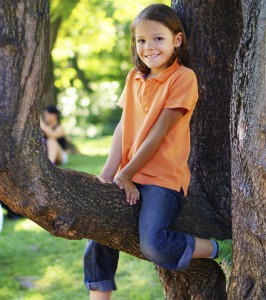Parental Protection & Your Child’s Resilience
We are experiencing a mental health crisis in our children that began before the pandemic and escalated through the pandemic. Some of this crisis was precipitated by an overemphasis on children’s safety and overprotectiveness on the part of parents. I find it interesting that children enjoyed more freedom in the 1960’s through the 1980’s even though crime was on the rise at that time. In fact, crime seemed to peak in the 1990’s and has since shown a decrease. Of course, there are still crimes but, overall, crime rates have decreased (See the Crime Statistics compiled by Let Grow.)
Still, news continues to catastrophize our awareness of what crimes do exist, contributing to continued and increased fear in parents. This has often led to parental overprotection and less time spent for children to engage in activities unsupervised by parents. This seems to have contributed to unhealthy coping mechanisms in children—less motivation, less ability to deal with problems in healthy ways, less independence, less confidence. The result of these unhealthy coping mechanisms? Anxiety, depression, substance abuse, defiance. I’m not trying to cast blame. We live in a scary world. It’s scary to let our children “go out into the world alone.” However, we also need to communicate confidence in our children’s ability to navigate the world in an age expected manner while teaching them to navigate it in a growing independent manner as they mature. Doing so will implicitly communicate confidence in their ability and will enhance their resilience and health. How can a parent do this?
- Begin by identifying your own fears. We all have fears. Parenting is a scary business. As you identify your fears, beware of negative filters. Do a little research. Learn about the true crime statistics. Learn about the benefit of unsupervised play for our children’s ability to problem-solve, take healthy risks, and grow more resilient. As you learn about your filters, you can escape from the extreme thinking that the world is either terribly unsafe or “pollyannishly” safe. You can wisely discern levels of safety and allow your children to engage in activities appropriate for their level of maturity and self-care while teaching them to grow more independent along the way.
- Allow your children to experience the frustration of difficult situations like going to a new place (one you have researched and determined as safe) on their own. Let them go to the local recreation center without you. Let them walk to the park alone. Let them take a bus to their friend’s house independently. Let them walk to the local grocery store to pick up a few grocery items for you. It’s scary to let them go out alone. But by letting them go independently (after you have taught them how) they grow rightfully and wisely confident in their own abilities and strengths.
- Encourage your children’s curiosity. Encourage them to explore places and thoughts. Let them learn about ideas and locations.
- Listen to what your children want to do and negotiate the parameters. Teach them to think through an activity or outing before embarking on that outing. Teach them to consider the possibilities and prepare.
It’s one of the biggest parenting challenges we face: letting our children grow independent. The first walk to school without a parent, the first walk to the park alone, their first independent trip to the grocery store, their first time driving alone…it all arouses a parent’s anxiety (at least it did for me). But we have to teach them the skills they need to “go at it alone” and trust that they have learned. We have to trust we have taught them well. Trust they have learned. Trust they will implement that knowledge. And let them go. Each time they do, our trust will grow, and their confidence and resilience will grow as well.

-0 Comment-